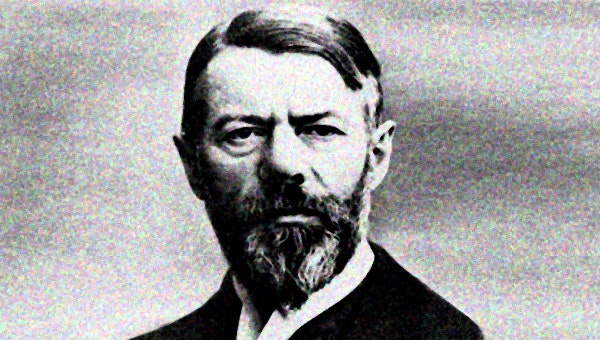
德国思想巨擎马克斯·韦伯在20世纪初,以其深邃的洞察力发现了欧洲文明进程中宗教信仰对近代资本主义诞生做出的特殊贡献,从而提出了不同于马克思“经济基础决定上层建筑”的历史发展观,并由此引发了一系列引人深思的文化、社会和宗教学问题。本课程将以对马克斯·韦伯的《新教伦理与资本主义精神》的深度阅读为基础,让学生对韦伯的宗教社会学研究有初步的了解,进而深入思考文化与社会互动的基本关系,提升学生的人文素养和培养独立思维精神。
Read more
德国思想巨擎马克斯·韦伯在20世纪初,以其深邃的洞察力发现了欧洲文明进程中宗教信仰对近代资本主义诞生做出的特殊贡献,从而提出了不同于马克思“经济基础决定上层建筑”的历史发展观,并由此引发了一系列引人深思的文化、社会和宗教学问题。本课程将以对马克斯·韦伯的《新教伦理与资本主义精神》的深度阅读为基础,让学生对韦伯的宗教社会学研究有初步的了解,进而深入思考文化与社会互动的基本关系,提升学生的人文素养和培养独立思维精神。
德国思想巨擎马克斯·韦伯在20世纪初,以其深邃的洞察力发现了欧洲文明进程中宗教信仰对近代资本主义诞生做出的特殊贡献,从而提出了不同于马克思“经济基础决定上层建筑”的历史发展观,并由此引发了一系列引人深思的文化、社会和宗教学问题。本课程将以对马克斯·韦伯的《新教伦理与资本主义精神》的深度阅读为基础,让学生对韦伯的宗教社会学研究有初步的了解,进而深入思考文化与社会互动的基本关系,提升学生的人文素养和培养独立思维精神。
本课程在系统介绍韦伯《新教伦理与资本主义精神》背景的基础上,让学生直接、深入阅读文本本身,同时补充一些欧洲文化史的相关内容(文艺复兴、新教改革、启蒙运动、资本主义兴起),并穿插一些韦伯社会研究方法论的基本观念(例如理想型、价值中立、选择亲缘性等),使得学生深入思考文化和社会之间的双向、互动的关系。此外,本课程还将着重培养学生扩展阅读(韦伯的其他著作,如《儒教与道教》、《经济与社会》等)和独立思考的能力。如有可能,本课程还将引导大家来反思个人的生活选择,例如对时间、金钱和职业的态度。
Two deals to help you save
What's inside
Syllabus
导论
“未经反思的生活是不值得过的。”古希腊哲学家苏格拉底这样告诉我们。如果将这一原则运用于这门慕课,那么在开始上课之前,郁喆隽老师就要来反思一下为何要阅读这本书——《新教伦理与资本主义精神》,以及为什么要开设这门慕课。因此,本模块将不会急于直接进入文本本身,而是要处理一些准备性的大问题。导论将紧紧围绕“反思”一词展开,分别解说“何谓反思”、“为何反思”以及“如何反思”等问题,以此为本慕课设定一些目标和基调。
Read more
Syllabus
Good to know
Save this course
Reviews summary
Highly praised introduction to weber's work
Activities
探索新教伦理与资本主义精神
Show steps
创建一份简明扼要的概述,介绍新教伦理与资本主义精神的主要论点和见解。
Browse courses on
Max Weber
Show steps
-
阅读文本并做笔记
-
确定论点的关键组成部分
-
梳理见解并写成简明扼要的摘要
反思个人经历
Show steps
撰写一段反思个人经历与信仰、价值观和职业选择之间的关系。
Browse courses on
Max Weber
Show steps
-
思考信仰、价值观和职业选择
-
探索个人经历与这些方面的联系
-
撰写反思性文章
拓展阅读韦伯著作
Show steps
阅读韦伯的另一部著作《儒教与道教》,探索其对亚洲宗教和资本主义关系的见解。
Show steps
-
获得书籍并阅读
-
概括书中的主要论点
-
分析韦伯对儒家伦理与资本主义关系的见解
Show all three activities
探索新教伦理与资本主义精神
Show steps
创建一份简明扼要的概述,介绍新教伦理与资本主义精神的主要论点和见解。
Browse courses on
Max Weber
Show steps
- 阅读文本并做笔记
- 确定论点的关键组成部分
- 梳理见解并写成简明扼要的摘要
反思个人经历
Show steps
撰写一段反思个人经历与信仰、价值观和职业选择之间的关系。
Browse courses on
Max Weber
Show steps
- 思考信仰、价值观和职业选择
- 探索个人经历与这些方面的联系
- 撰写反思性文章
拓展阅读韦伯著作
Show steps
阅读韦伯的另一部著作《儒教与道教》,探索其对亚洲宗教和资本主义关系的见解。
Show steps
- 获得书籍并阅读
- 概括书中的主要论点
- 分析韦伯对儒家伦理与资本主义关系的见解
Career center
Sociologist
Economic Historian
Anthropologist
Theologian
Professor
Religious Studies Scholar
Minister
Rabbi
Priest
Imam
Librarian
Archivist
Museum curator
Journalist
Lawyer
Reading list
Share
Similar courses
OpenCourser helps millions of learners each year. People visit us to learn workspace skills, ace their exams, and nurture their curiosity.
Our extensive catalog contains over 50,000 courses and twice as many books. Browse by search, by topic, or even by career interests. We'll match you to the right resources quickly.
Find this site helpful? Tell a friend about us.
We're supported by our community of learners. When you purchase or subscribe to courses and programs or purchase books, we may earn a commission from our partners.
Your purchases help us maintain our catalog and keep our servers humming without ads.
Thank you for supporting OpenCourser.


